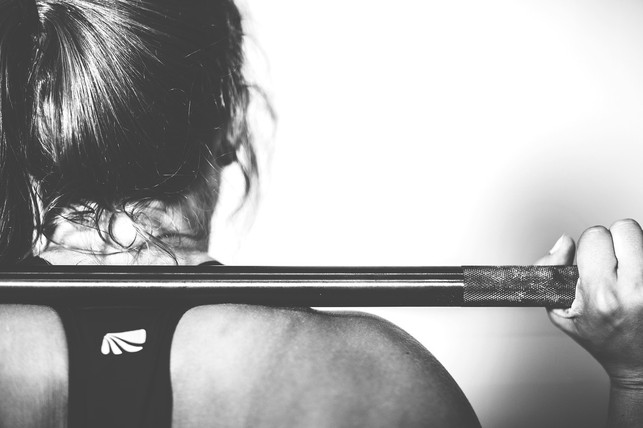
Depending on the situation, depending on the situation, to do sports without eating anything. You can find out exactly which these are, what you should pay attention to and when sport is not a good idea on an empty stomach.
To do sports on empty stomach is considered a particularly efficient weight loss method. According to this theory, the body pulls the energy for the morning workout primarily from stored fat cells and carbohydrates and not from the food that has just been absorbed. So you should be able to lose weight faster. However, it is scientifically controversial whether this is actually true.
However, some people also do sports on an empty stomach for completely different reasons. So after a meal you may feel too full and limp for many hours to do sports. At the same time, sufficient food is of course also important in order to have enough strength and endurance for a sports unit. Or you are fasting, but want to continue to do sports.
Whether sport makes sense on empty stomach depends on a number of factors that you should weigh down depending on the individual requirements.
Sports on empty stomach: better to lose weight?
Endurance sport on empty stomach has achieved a lot of popularity in the fitness scene under the term “fasted cardio”. So far, it has not yet been clearly proven whether people with cardio units actually lose faster if they have not eaten anything beforehand. According to the magazine Healthline, there are studies that speak for it and against it.
On the other hand, if you do weight training and want to build muscle, sport is not a good idea on an empty stomach. Because to build muscle, it is important to have taken enough protein before the workout, according to the Clinic.
Before eating food for sufficient energy

(Photo: CC0 / Pixabay / Ichigo121212)
If you wake up early and haven’t eaten, your blood sugar level is particularly low. If you then challenge your body with an intensive workout, this can lead to drowsiness, tiredness and lethargy. This effect is also known as “bonking”. In this case you feel weak and you can’t do your sports unit as powerfully as it might have been possible if you had already eaten something.
Especially if you want to build muscle or run faster, train for a long distance (for example a half marathon) or have similar fitness goals, it can make more sense to eat something before the morning training. If you can’t really have breakfast, you can only consume a light pre-workout snack that brings you through your workout. For this, there are particularly easily digestible things that supply you with nutrients, but are not too heavy in the stomach. For example, eat some fruit, such as an apple, a cereal bar or a slice of bread with a little jam or nutm.
However, whether a small snack is sufficient before training also depends on the intensity of your sports routine. If you plan a light to moderate workout of about 30 minutes, a snack is enough. When training of an hour or more, you should have consumed a sufficiently large meal beforehand, according to the Cleveland Clinic. This also applies to particularly intensive sports units. Make sure that there are about two to three hours between the meal and your training. So the food is no longer too much in your stomach. Especially with particularly long endurance units, it is sometimes necessary to eat during the workout. Fresh or dried fruit or cereal bars are also suitable for this, which you can easily take with you.
Intervall fasting and sport
Especially people who carry out interval fasting, so skip breakfast and still want to do sports in the morning, may be dependent on sober training. To what extent can be combined with interval fasting and sport is scientifically controversial and depends on the individual case.
According to the Expert: Inside the Austrian Society for Sports Nutrition (ÖGSE), long fasting periods and hard endurance training can result in an energy deficit, which in turn can have a negative impact on performance, strength, coordination and regeneration in the long term. At the same time, studies with athletes show: Inside in Ramadan that sober endurance training can even have positive effects – as long as the entire daily calorie balance is not too low. Then sober, moderate training could favor fat loss and increase insulin sensitivity.
According to the ÖSGR, there are also studies for strength sports that can find no significant differences between the successes of fasting and non-fasting athletes. The experts, however, emphasize that a sufficiently high amount of protein is required for successful muscle building. To consume this within a time window of just eight hours, as the widespread 16: 8 fasting method provides, they consider unrealistic.
Conclusion: For whom is sport suitable for empty stomach?
Whether sport is something for you on an empty stomach can also be tested within a light workout. If you notice in between that you lack the strength or you feel stunned and weak, broke the workout better and take some food with you. If, on the other hand, the training is easy for you, there is nothing to be said against doing sports on an empty stomach.
However, older people should better refrain from sport on empty stomach. People with health restrictions or previous illnesses should also obtain medical advice beforehand.
Read more on utopia.de:
-
Eat before or after sports? So you do it right
- Doing: This is how you find the right sport
- Does sport have to hurt? This is what Expert say: inside
** marked with ** or orange underlined Links to sources of supply are partially partner links: If you buy here, you will actively support Techzle\.com, because we will then receive a small part of the sales proceeds. More information.